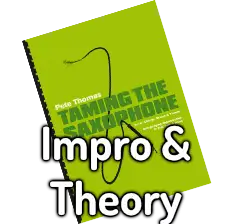Oliver Bentley
Member
- Messages
- 9
Hi guys,
think Ive asked this before a long time ago, but (still) considering getting my mk 7 tenor stripped. Can now get it done properly very cheaply, hence the reconsider, and the guy I know in Leeds* who's sound I love and playing I love has advised me to go for it - he played a mk7, said it sounded wicked stripped. As we seem to be going for a similar sound, I'm really up for it, but spoken to lots of people both for and against (some almost militantly so!) so thought I'd see what you guys had to say, see if any one here has had it done?
cheers,
Oli
*Simon Kaylor - absolute monster, plays with a contemporary quintet If Destroyed Still True (IDST) - well worth keeping an eye out for...
think Ive asked this before a long time ago, but (still) considering getting my mk 7 tenor stripped. Can now get it done properly very cheaply, hence the reconsider, and the guy I know in Leeds* who's sound I love and playing I love has advised me to go for it - he played a mk7, said it sounded wicked stripped. As we seem to be going for a similar sound, I'm really up for it, but spoken to lots of people both for and against (some almost militantly so!) so thought I'd see what you guys had to say, see if any one here has had it done?
cheers,
Oli
*Simon Kaylor - absolute monster, plays with a contemporary quintet If Destroyed Still True (IDST) - well worth keeping an eye out for...






